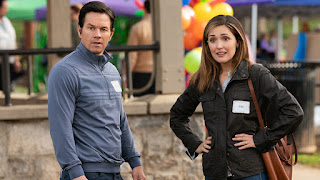"I Used To Think My Life Was A Tragedy, But Now I Realise, It's A Comedy..."

Suitably utilising the effects of the famous saying, "there is no such thing as bad publicity", War Dogs and The Hangover director, Todd Phillips, returns to cinemas this week with Joker, a movie which brings with it an a-typical example of contemporary social media carnage involving a movie which manages to have the official double stamp of both early critical plaudits and volcanic audience expectation. Benefitting from early calls of being given "masterpiece" status after its' debut at this year's Venice International Film Festival back in late August, Phillips' movie famously has been through sensational, La La Land-esque levels of backlash from many across the globe even before any form of general release, with particular avenues of spectators arguing the negative impact the film may have on the wider populous due to its' oppressive and disturbing themes, a particularly nonsensical argument which harks back to the age-old sociological theory that violent media turns the lay person into sadistic, sociopathic serial killers. Putting such nonsense aside, Joker as a film is a surprisingly nihilistic and hauntingly effective character study, a movie which is designed with such freedom and disregard for the opinions of the masses that for it to be classed as just another "comic book movie" would be a disservice of the highest order, and in an era where the Marvel Cinematic Universe is clearly the holy bible of what audiences have come to expect from superhero movies, Joker is a satanic, incendiary work of madness which is by far the most original and boldly constructed so called "mainstream" movie in many a good year.

With the influences on Phillips' movie wide ranging to say the least, the movie of course predominantly relies on its' central character's source material, particularly the grittier end of the comic book world including Alan Moore's critically lauded graphic novel, The Killing Joke, which also served as a basis for Christopher Nolan's and Heath Ledger's depiction of the character within The Dark Knight, and whilst Ledger's approach to the infamous villain was the darkest and most complex incarnation cinema audiences had seen at the time, the masterstroke casting of the brilliant Joaquin Phoenix (The Master) means that in the form of Arthur Fleck, the world bears witness to a Joker who takes the term, "sociopath", to an entire new level. With many already comparing Phillips' movie to the sheer isolation and hopelessness of Scorsese's Taxi Driver, the smokey, industrial wasteland of an early 1980's era Gotham means that tonally, Joker does owe Scorsese's classic a huge amount of debt, with the central narrative of Phillips' movie closely mirroring Paul Schrader's original script as we see Phoenix's Fleck slowly embrace the hatefulness and disillusioned hatred he has for his own world by being constantly subjected to violence, abuse and high profile ridicule at the hand of Robert De Niro's (Goodfellas) Murray Franklin, a popular talk-show host who in the eyes of Fleck, embodies everything that is wrong with a society which is determined to keep the rich intact and the poor struggling to survive.

Whilst the movie does of course have an overarching social commentary regarding issues of capitalism and societal breakdown, albeit in a way which could have done with a slightly more subtle approach, Phillips rightly is more interested in using his chance to utilise the breathtaking acting skills of Phoenix as much as possible, an actor who in return offers up the most dedicated and physical performance to be seen this year as he beefs up his character with a skeletal physicality and an interesting condition which sees him laugh hysterically for extended periods without the ability to prevent himself from doing so. With another influence being Lynne Ramsay's You Were Never Really Here, an equally stark and stylish work of brilliance with Phoenix on top form, the similarities involving each film's leading character's relationship with their mother, their relationship with the outside world and their relationship with their own personal mental health issues does offer up an interesting double feature, and whilst Joker is of course the more mainstream of the two movies, the darkness and violent nature at the heart of it never gives away for the sake of appeasing happily paying audiences, resulting in jaw-dropping explosions of violence which reminded me of Drive and the infamous curb-stomp scene from American History X, and as the movie progresses into its' final act in which the narrative plays into a crescendo of Fight Club meets V for Vendetta, all the subplots in the two hours previous come to a mightily radical end, one which physically made me jolt at the bravery of a film which stuck to its' guns completely and became the better for it. Comedic and heartwarming Joker is not, and in an era when filmmakers need to break ground in the comic book genre to truly stand out among the money making behemoth's, Phillips has created the best DC movie since The Dark Knight and the most radical interpretation of any comic book character I can remember, and if you can stomach the violence and handle the sheer darkness at the heart of it, Joker is mightily impressive and rewarding in equal measure.
Overall Score: 9/10







































